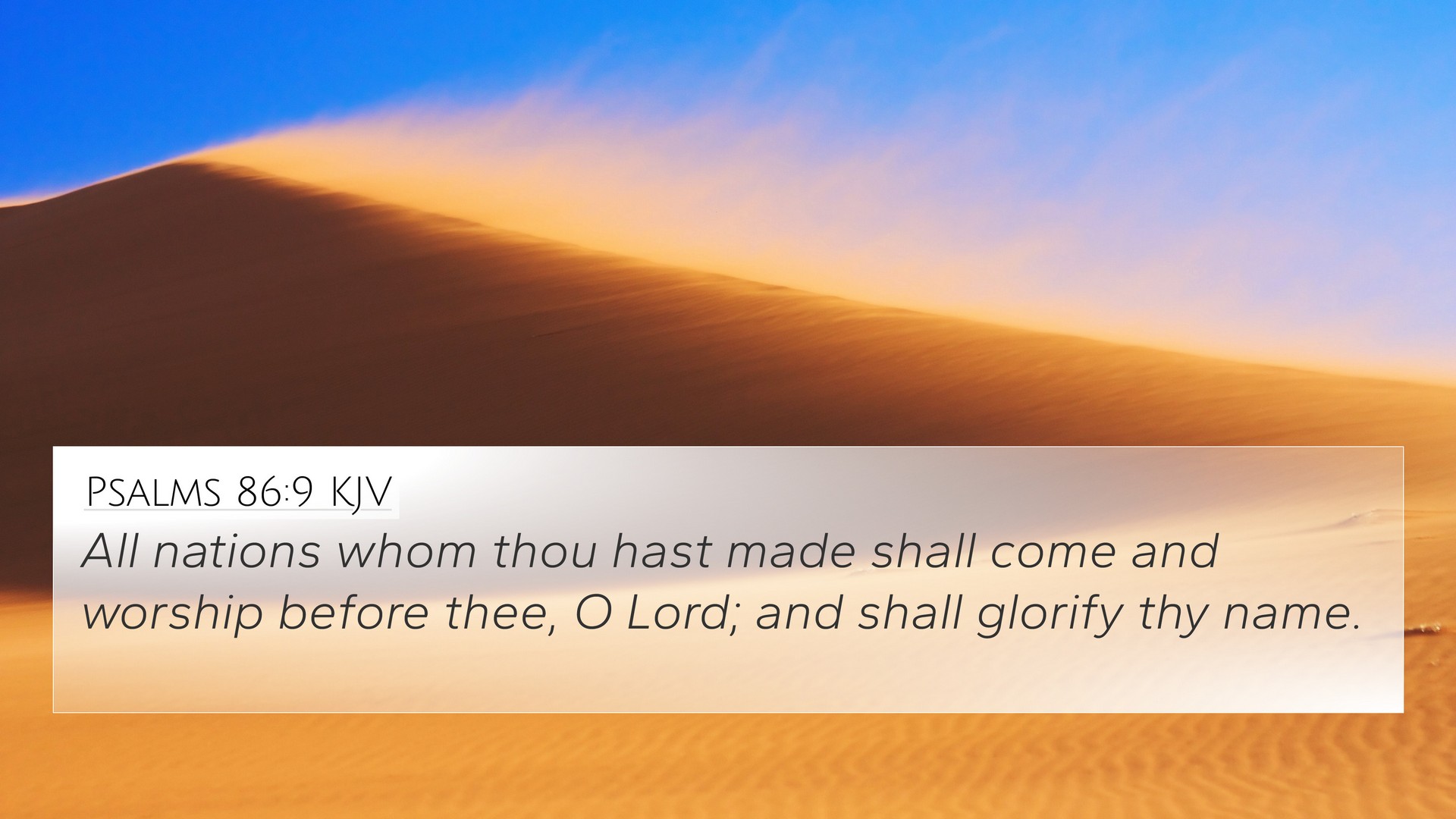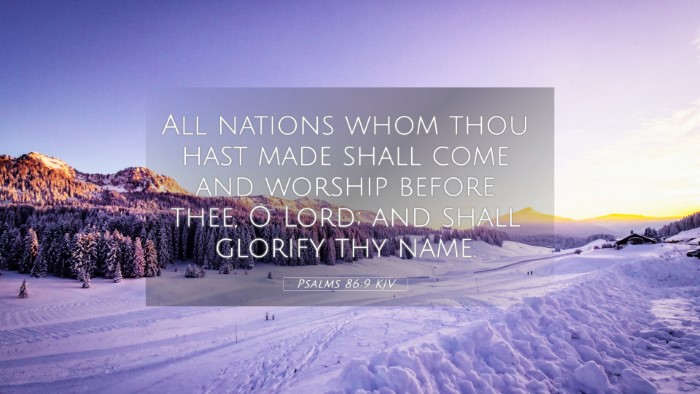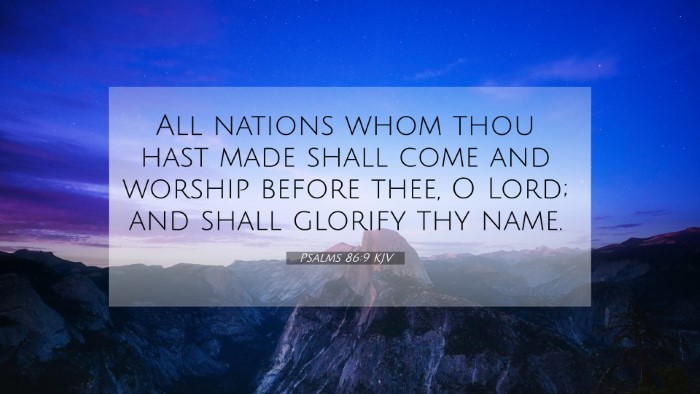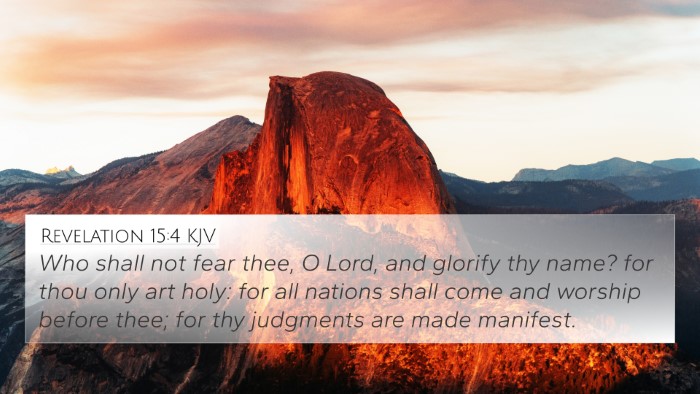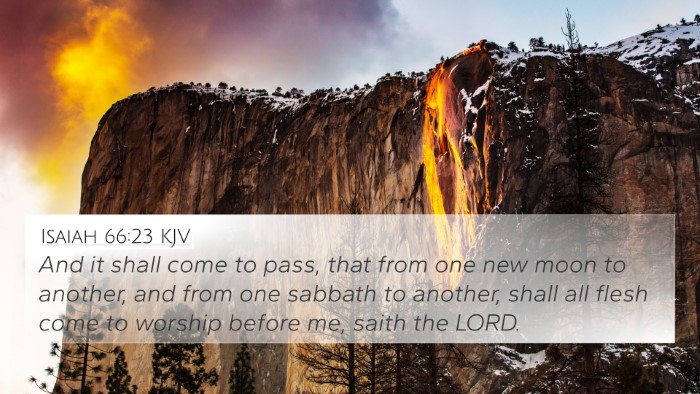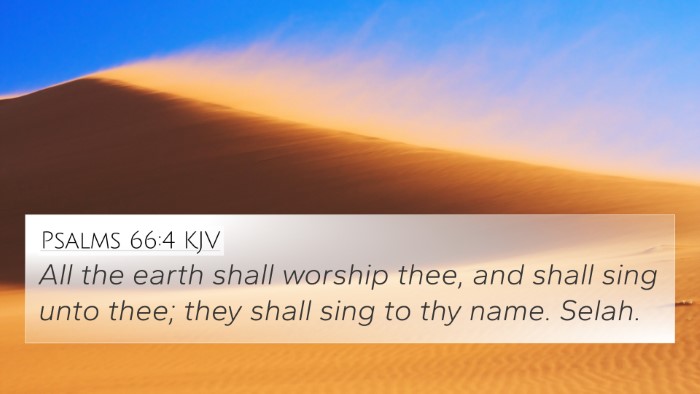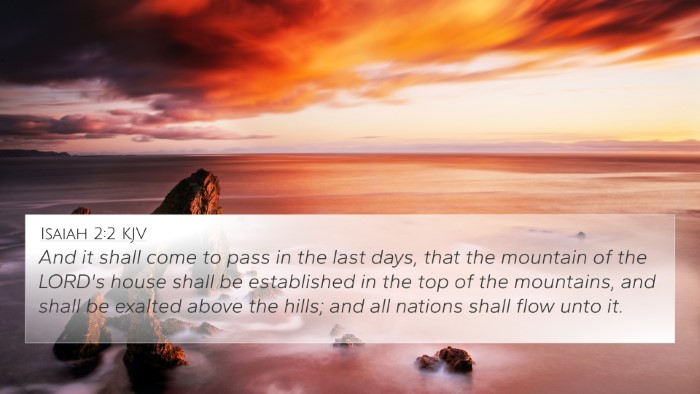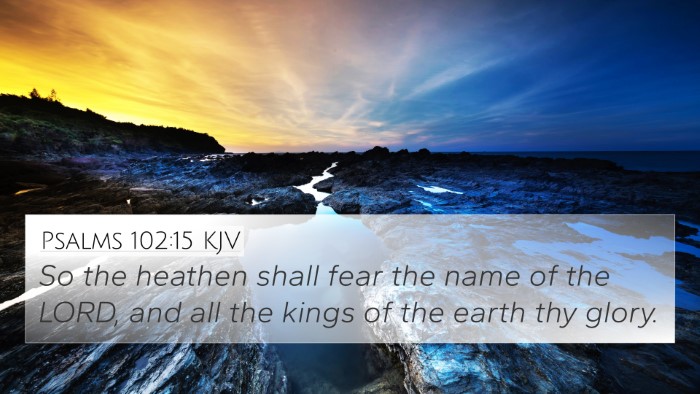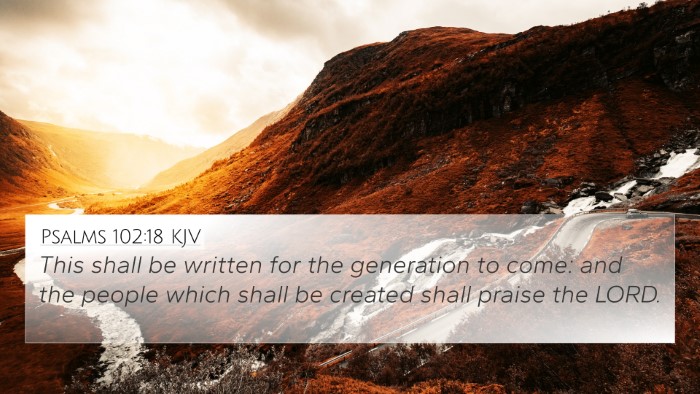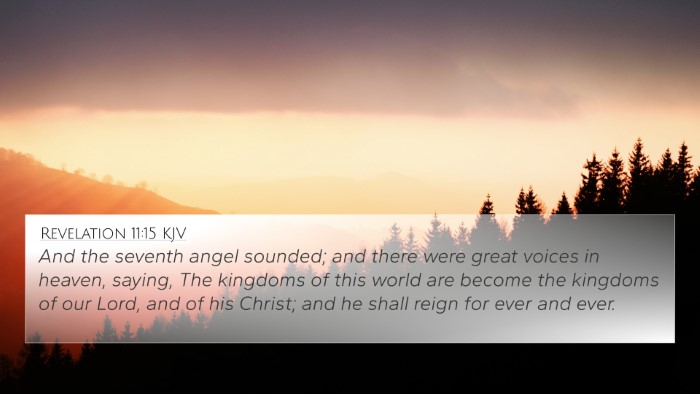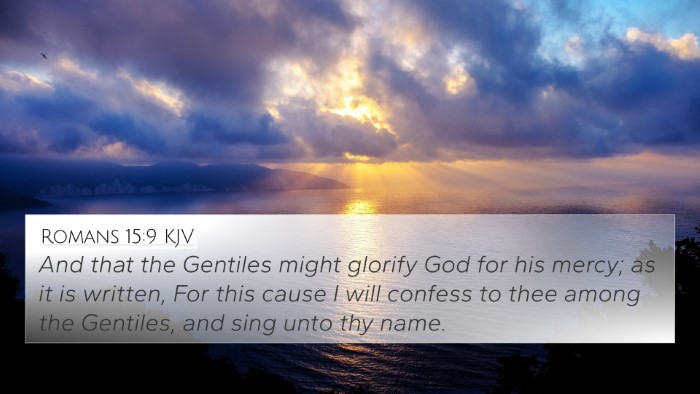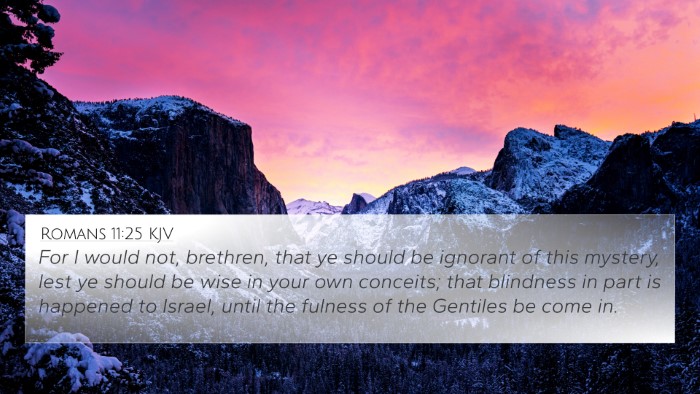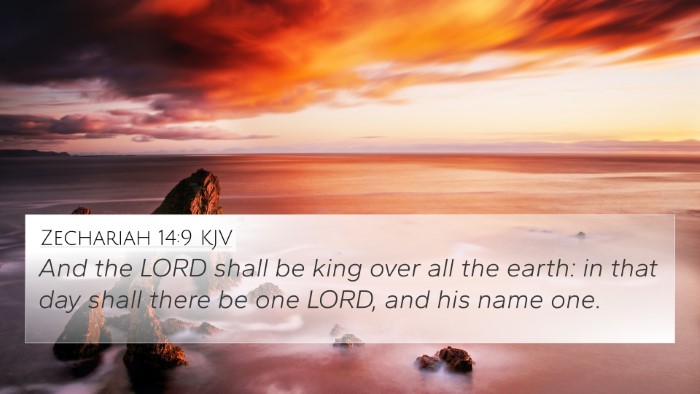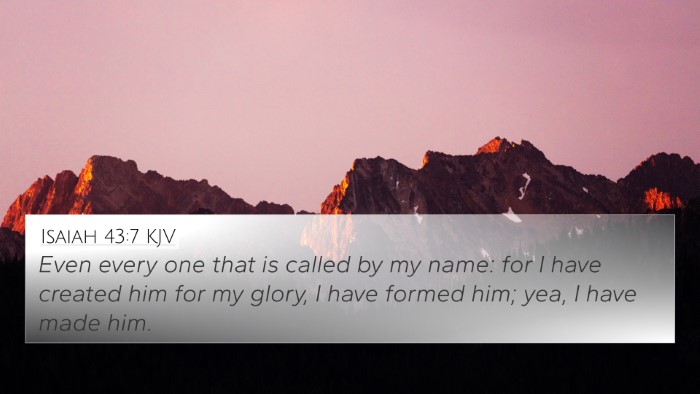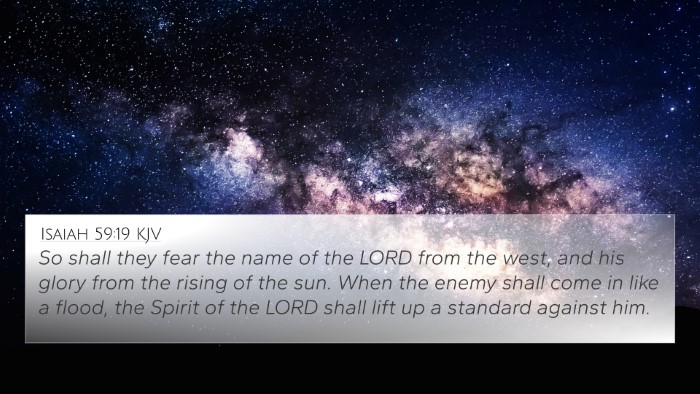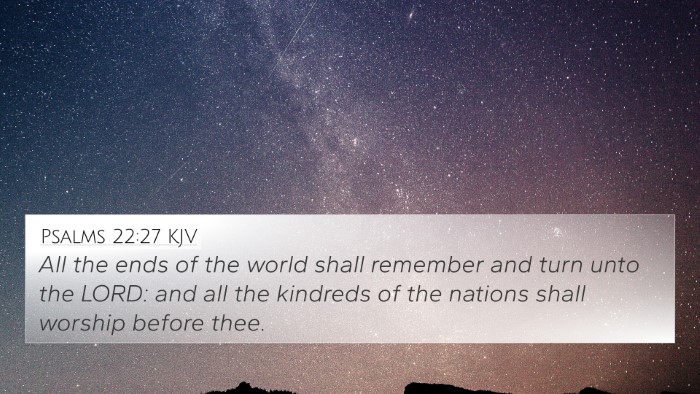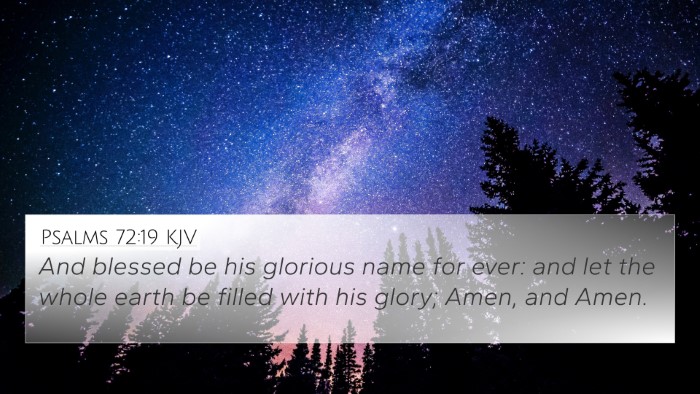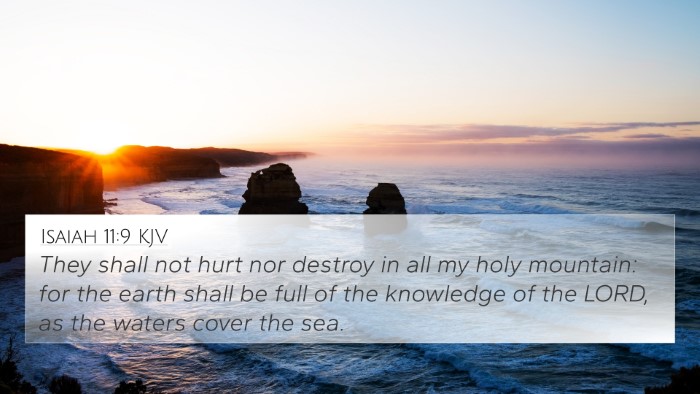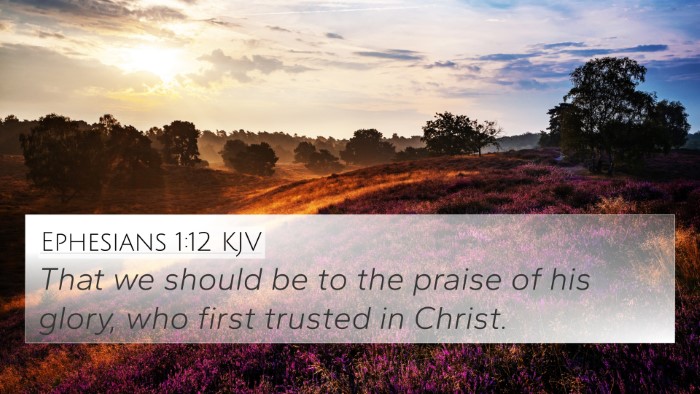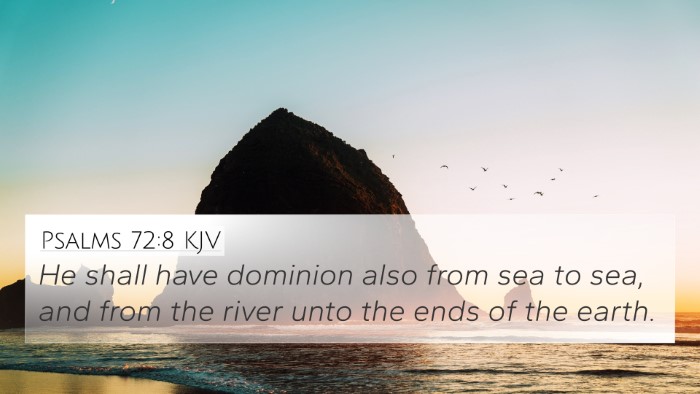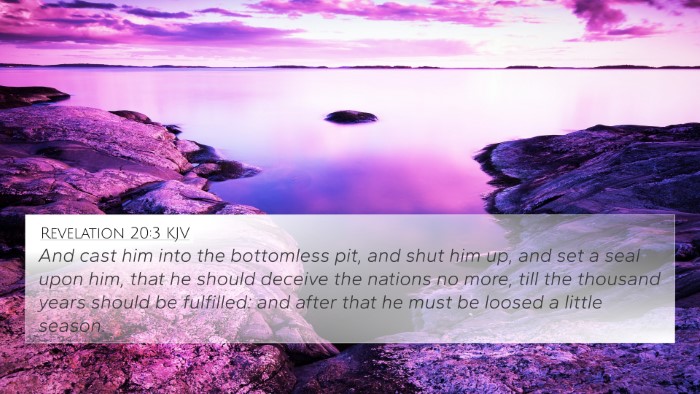Psalms 86:9 - Meaning and Interpretation
Bible Verse: Psalms 86:9
"All nations whom Thou hast made shall come and worship before Thee, O Lord; and shall glorify Thy name."
This verse encapsulates the universal nature of God's sovereignty and the guarantee of worship from all nations. It expresses a profound vision of the nations acknowledging the Lord and coming to Him with reverence.
Summary of Insights from Public Domain Commentaries
Matthew Henry's Commentary
Henry elucidates that this verse reflects the absolute dominion of God over all creation. He emphasizes that the phrase "All nations whom Thou hast made" signifies God's role as the Creator, implying that acknowledgment and worship are due to Him alone. The humility and recognition of God's authority by all people is a prophetic declaration of future events wherein every nation will ultimately honor Him.
Albert Barnes' Notes
Barnes expands on the notion of worship in this context. He interprets the verse as a declaration of the future conversion of the nations to God. The worship mentioned here transcends mere acknowledgment; it implies a heartfelt, genuine devotion to God, recognizing His sovereignty over all humanity. Barnes notes that this may refer to the eschatological gathering of believers from diverse backgrounds who will worship God in unity.
Adam Clarke's Commentary
Clarke focuses on the implications of God's creative power reflected in this verse. He notes that the acknowledgment from all nations suggests a unifying factor, as nations historically have worshipped various gods. Clarke points to the anticipation of a time when all will recognize the true God. Additionally, he illustrates the theological concept that God’s kingdom will extend beyond Israel, welcoming believers from all nations.
Connections to Other Bible Verses
Psalms 86:9 connects deeply with several other scriptures, reinforcing its message through inter-Biblical dialogue.
- Isaiah 66:23: "And it shall come to pass, that from one new moon to another, and from one Sabbath to another, shall all flesh come to worship before Me, saith the Lord." - This verse parallels the theme of universal worship.
- Revelation 15:4: "Who shall not fear Thee, O Lord, and glorify Thy name? For Thou only art holy; for all nations shall come and worship before Thee..." - A prophetic vision aligning with Psalm 86:9.
- Philippians 2:10-11: "That at the name of Jesus every knee should bow, of things in heaven, and things in earth, and things under the earth..." - This verse emphasizes submission to God's name from all creation.
- Zechariah 14:16: "And it shall come to pass, that every one that is left of all the nations which came against Jerusalem shall even go up from year to year to worship the King, the Lord of hosts." - Reflects the eschatological theme established in Psalm 86:9.
- Malachi 1:11: "For from the rising of the sun even unto the going down of the same, My name shall be great among the Gentiles..." - This underscores the universal recognition of God’s greatness.
- John 4:21-23: "The hour cometh, and now is, when the true worshippers shall worship the Father in spirit and in truth..." - Jesus speaks to the future worship encompassing all nations.
- Acts 15:17: "That the residue of men might seek after the Lord, and all the Gentiles, upon whom My name is called..." - Reflects the inclusion of Gentiles into God’s people, aligning with the theme of Psalm 86:9.
- Romans 15:9: "And that the Gentiles might glorify God for His mercy..." - This connects closely with the acknowledgment of God’s mercy towards all nations.
Thematic Bible Verse Connections
This verse exemplifies a larger thematic exploration of God's universality and the nature of worship throughout Scripture.
- The Sovereignty of God: A recurrent theme in the Bible, emphasizing God as creator and ruler over all nations.
- Future Glory of God: The anticipation of universal worship is found in both the Old and New Testaments.
- The Call to Worship: The attitude and posture of coming before God is a central element seen across various books.
- Inclusiveness of Salvation: The concept that salvation and worship are not limited to Israel but extend to all people.
Tools for Bible Cross-Referencing
To explore the connections and deeper meanings behind Psalms 86:9 and other scripture, several tools may provide assistance:
- Bible Concordance: A valuable resource for identifying where specific words appear throughout scripture.
- Bible Cross-Reference Guide: Often found in study Bibles, these guide you to related verses.
- Cross-Reference Bible Study: A method of studying scripture in a way that emphasizes thematic links.
- Bible Reference Resources: Include dictionaries, commentaries, and scholarly works that delve into inter-Biblical relationships.
Understanding Cross-References in the Bible
Learning how to find and utilize Bible cross-references is essential for a comprehensive understanding of scripture. Here are some methods:
- Identifying connections between Old and New Testament: Look for promises and their fulfillment that span both testaments.
- Comparative study of Pauline epistles: Addresses common themes and teachings across Paul's letters.
- Cross-referencing Psalms with New Testament teachings: Identifies how prophetic Psalms find their resolutions in Jesus' ministry.
User Intent When Seeking Cross-References
Understanding user intent can enhance the study of Psalms 86:9. Common queries include:
- What verses are related to Psalms 86:9? Creates a framework for exploring interconnections.
- Find cross-references for different Bible verses: Helps in understanding the broader scripture context.
- How do two specific Bible verses connect? Encourages deeper analysis of scripture's interwoven messages.
- Similarities between different verses: A comparative approach can reveal theological parallels.
- Bible verses that support specific themes: Strategic for sermon preparation and teaching.
Conclusion
Psalms 86:9 serves as a profound reminder that all nations are designed to worship God, affirming His sovereignty and encouraging unity among diverse peoples under His divine authority. The interconnectedness of Biblical texts deepens our understanding, offering a comprehensive biblical framework for worship and reverence. Utilizing tools for cross-referencing can unveil the richness of scripture, enhancing both individual study and collective worship.
